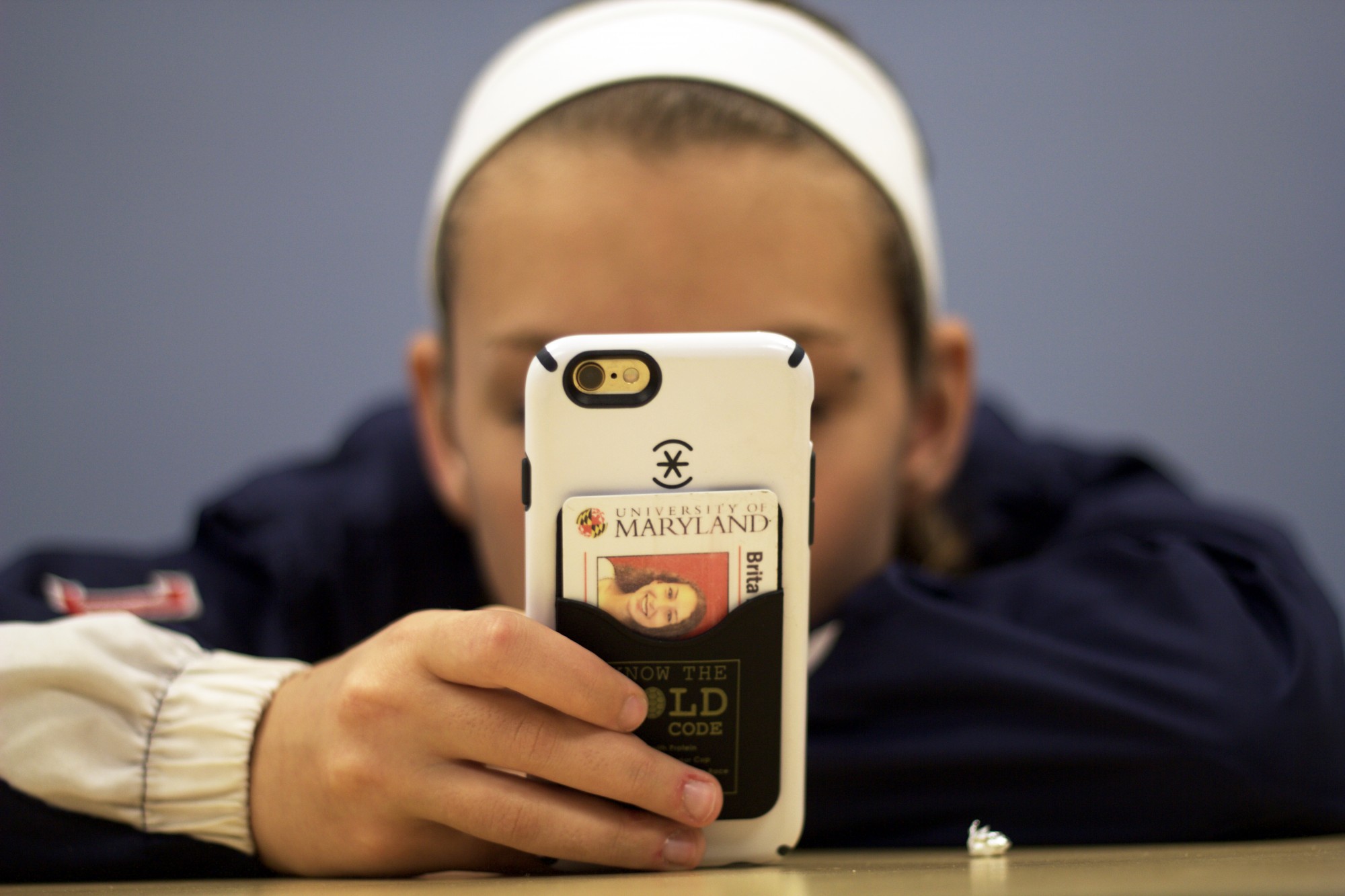On the first day of classes, Zach Mostowsky donned a chicken suit in sweltering, 90-degree heat and walked around the University of Maryland’s campus handing out fliers with a black Labrador Retriever puppy.
Mostowsky, a senior geographical information systems major, was trying to promote Cluk, a new app created by his friend Robert Rozenvasser, a 2014 university graduate.
The idea was spurred after Rozenvasser realized one day he didn’t have an iron in his apartment and wanted to borrow one from someone in his building, but didn’t know his neighbors well. He told his friend, Daniel Fleysher, and the two set out to create an app that could connect people in a local area, said Fleysher, who graduated from Baruch College in 2014.
“We wanted to do something unorthodox, something big and something that would basically catch people’s eyes,” Fleysher said.
Cluk bills itself as a virtual hub for the university community, allowing users to post anonymously, share events, sell items, find local deals and swap profiles with other users in private chats, according to its website. The app is restricted to this university’s students.
Rozenvasser said he was surprised by how quickly students flocked to the app in the first few days. By the end of the week, Fleysher said they had around 500 users. After only a month, it’s quickly approaching 2,000 downloads.
“On our second day [of promoting the app], when we walked around with the chicken suit, our servers actually crashed just because so many people were trying to download the app at the same time,” Rozenvasser said.
Rozenvasser was unhappy at the time with his job as a financial analyst at a large corporate law firm in New York City, he said. Although neither of the childhood friends had any developing experience, Rozenvasser quit his job at Shearman & Sterling to focus on Cluk.
The two friends’ lack of technical knowledge actually helped them create something people can connect with, Rozenvasser said.
“We’re outsiders, and I think that brings a new perspective,” Rozenvasser said. “A lot of people may see it as a flaw that we’re not a technical-based team, or technical-based founders, but we kind of see it as an advantage because it gives us a perspective that others don’t really have.”
Rozenvasser said he spent six months working on the interface design and prototype before traveling to California to pitch Cluk to developers. They partnered with Halcyon Innovation in December 2015 to begin developing the app’s software, and it took about six months to complete.
Cluk averages about 150 to 200 posts a day, Rozenvasser said, but “private chats are off the charts,” with thousands of messages sent each day.
Rozenvasser credits this to people’s ability to meet in an “unbiased, nonjudgmental way” on Cluk. Users are anonymous until they agree to swap profiles after starting a private chat.
“On Facebook or another profile-based platform, the first thing you look at is the person’s picture,” Rozenvasser said. “On our platform, it’s the other way around. First comes the interest, then you can private chat with this person and start a real conversation.”
Although Cluk currently only works on this university’s campus, Fleysher said they plan to expand to other campuses in the Washington area once they hit about 5,000 users.
“We’re in our infancy right now, and we’re just very happy to see that people are actually using it,” Rozenvasser said. “It’s been three weeks, and every single day we have more replies, more chats, more activities. It’s just pushing us to keep working on it and try to get more people to use it.”



